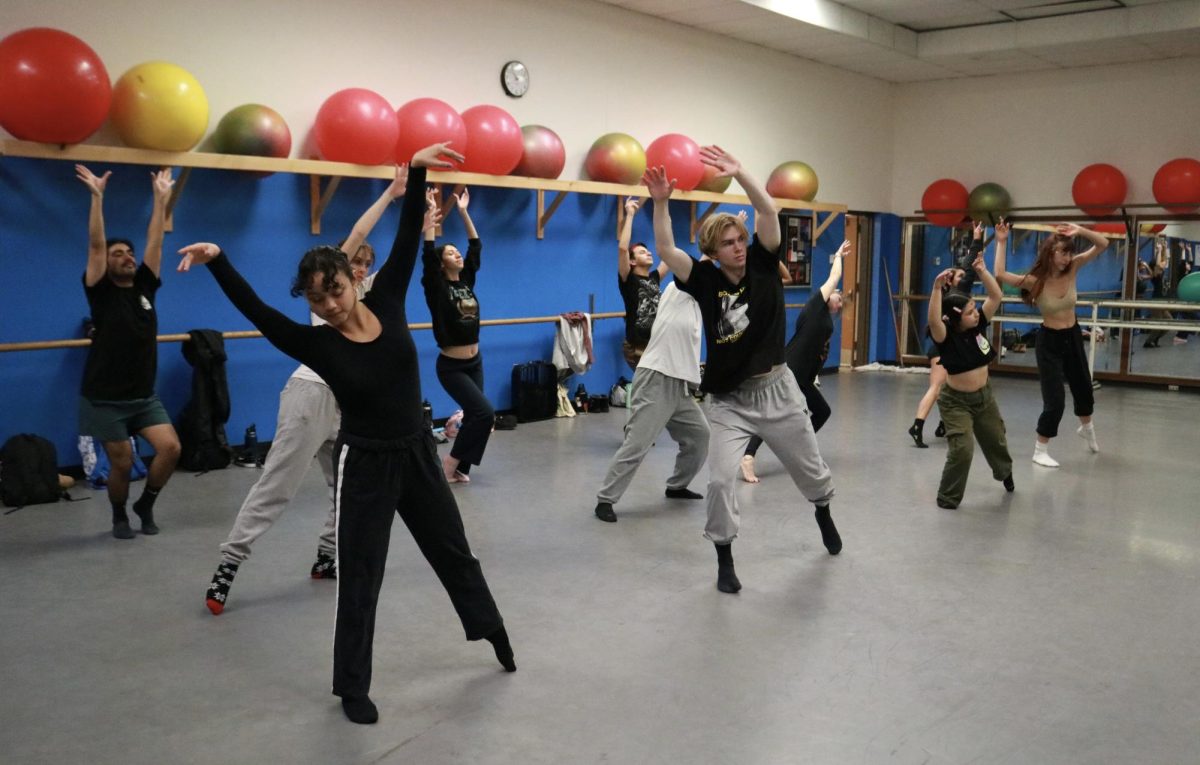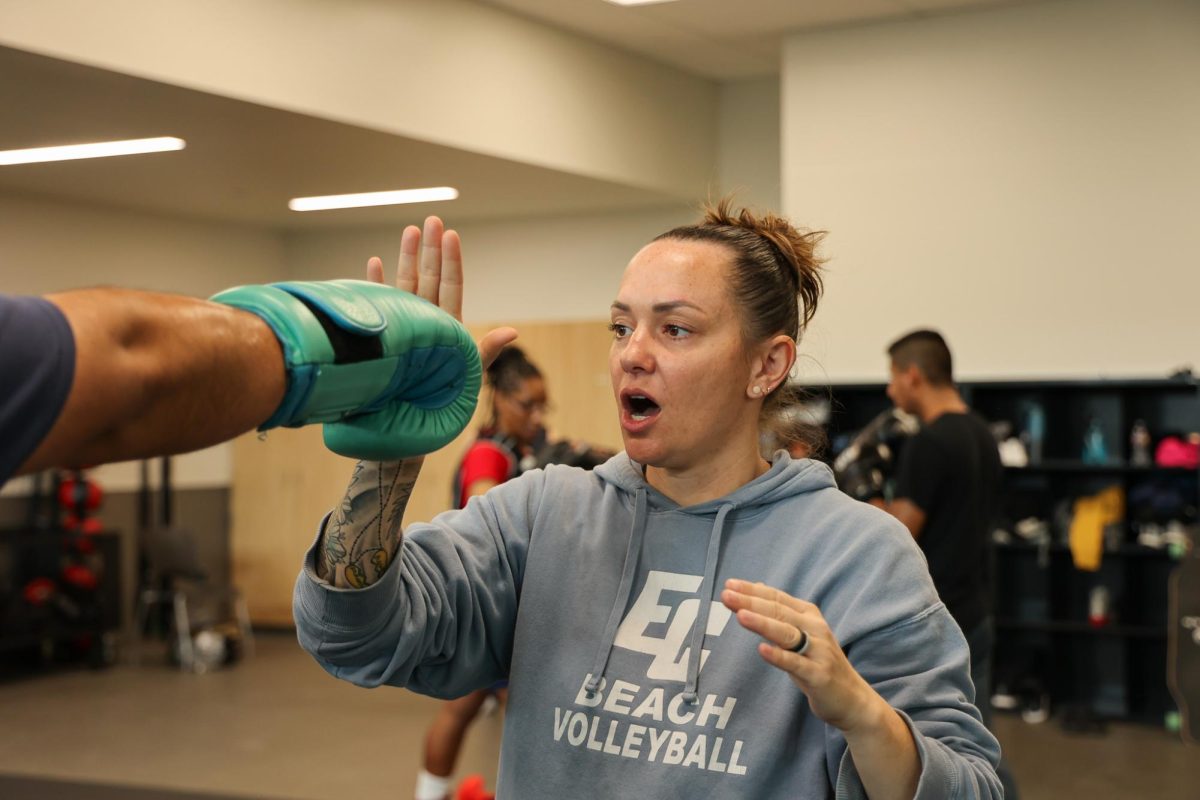Like bullets, they come whizzing past. Oftentimes, they hit their target, leaving a burn that’s hard to forget.
A 20-year-old communications major who wishes to remain anonymous has experienced such attacks firsthand.
“Guys will say things like, ‘Hey, you looking good,'” she said.
She has even been pursued.
“They follow you until you tell them you’re not interested,” she said.
Sometimes, words aren’t enough.
“Even then, they’ll keep following you, or ask if you want a boyfriend, or if you can just be friends,” she said.
She said sexual harassment is an on-campus reality and it’s not exactly a secret, either.
“I’ve heard through word of mouth that there was something about girls being harassed at night in the parking structure,” Nick Ortaliz, 20, nursing major, said.
Sgt. Kirk Johnston has received many calls in the past complaining of harassment.
“(Sexual harassment) is not a crime violation; but we will go over and we’ll sit them down and talk to the group or the individual,” Johnston said.
Sometimes, it’s not just words that journey where they shouldn’t.
Inappropriate physical contact of the sexual nature is known as sexual battery, and, unlike harassment, is a crime violation that can result in arrest, Johnston said.
He said that sexual battery is also a familiar face on campus.
“We’ve had guys grab girls in the behinds,” Johnston said. “We’ve arrested many people for that.”
Frequently, only women fall prey to such behavior.
Almost 95 percent of sexual harassment and battery reports on campus are from females, Johnston said.
“I don’t know any woman who doesn’t have a story,” sociology professor Sue Dowden said.
“All women in the workplace will eventually experience sexual harassment,” she said.
History and women’s studies professor Maria Brown said that this slant is inborn in American culture.
“The American attitude about sex is very different from attitudes in other countries,” Brown said. “It’s the orientation in society that women are the weaker sex.”
Ortaliz attests to the notion that women are “easier targets.”
“A majority of women lack a lot of things men have, such as the strength to ward them off,” Ortaliz said. “A sexual predator would have an easier time with a woman than with a man.”
However, what women lack in some departments, they make up for in other ways.
“We’ve got boobs and we’ve got butts,” the 20-year-old said. “Guys get off by that.”
The attacks usually depend on one’s clothing, she said.
Slipping on something provocative is more likely to grab more ogling eyes.
Some female students come on campus with this intention, she believes.
“Girls want the attention,” she said.
Spaghetti straps or long sleeves, male or female, harassment generally occurs anywhere there is a difference in power, Dowden said.
“It has nothing to do with anything personal,” Dowden said.
“It’s not about sex. People do these things to show their power,” she said.
There are two kinds of sexual harassment, Dowden said.
One type is “quid pro quo,” which translates from Latin to “this for that.”
“‘If you sleep with me, I’ll give you a raise,’ for example,” Dowden said.
The second type of sexual harassment involves a hostile environment and workplace.
“That one is a little harder to define. It’s based on the environment,” Dowden said.
Such an environment is considered hostile when sexual harassment is tolerated and fostered, Dowden said.
“We don’t endorse (sexual harassment), but it’s going to be there,” Johnston said.
“We’re less tolerant of it than any other public place,” he said.
A lack of communication tends to blur the lines between what is and what is not appropriate as well.
“What women may feel is sexual harassment, men may not,” Brown said.
Because the conclusive definition of sexual harassment depends on the individual, Dowden stresses the idea of speaking out to the violator.
“Sometimes people don’t even know that they are making them uncomfortable,” Dowden said. “That’s why saying something is important.”
“I ignore them until they get the point,” she said.
She also suggests pretending to talk on the phone or walking with the company of friends. Reporting the problem is also an option.
“(Victims) should report it to their superior,” Dowden said.
Sexual harassment complaint forms are available in the Office of the Director of Staff and Student Diversity and the Office of Personnel Services.






